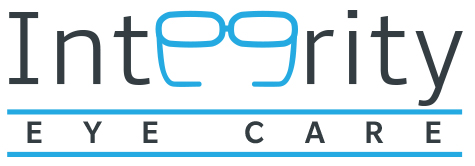Life gets busy. Between work, school pickups, grocery runs, and everything else on your plate, it’s easy to let eye exams fall to the bottom of the to-do list, especially if your vision seems fine. But your eyes can change more than you realize, and many eye conditions develop quietly without obvious symptoms. Comprehensive eye exams are the only effective way to diagnose and monitor eye diseases over time. If you’re wondering how often to get an eye exam, here’s what you should know.
How often do you need an eye exam?
These are general recommendations based on guidelines from the American Optometric Association, but your eye doctor may suggest a different schedule based on your specific needs.
Infants and children
- 6–12 months: Babies should have their first eye exam around 6 months old to check for early vision development issues.
- Age 3: A second exam at this age helps catch problems with eye coordination or early signs of conditions like lazy eye.
- Before starting school: Ensures your child has the visual skills needed to succeed in the classroom.
- School-age children: Once a year is best, even if they aren’t showing signs of vision problems, because kids don’t always know how to tell you something’s wrong.
Adults age 18–39
- No vision problems? You can typically see an eye doctor every two years.
- Wearing glasses or contacts? An annual eye exam ensures your prescription is up-to-date and your eyes are healthy.
- At-risk individuals: If you have diabetes, high blood pressure, or a family history of eye disease, yearly exams are recommended.
Adults age 40–64
This age group is more likely to notice age-related vision changes, such as presbyopia (trouble focusing up close due to aging) or symptoms of eye strain.
- Low risk: An eye exam every two years may be enough, but you should consult your eye doctor on the best eye exam frequency.
- Wearing corrective lenses or at higher risk? Schedule yearly appointments to keep up with vision changes and screen for issues like cataracts or glaucoma.
Seniors age 65 and older
As we age, we become more susceptible to conditions such as macular degeneration, cataracts, and glaucoma. Annual eye exams are important to detect these problems early before they impact your eyesight and quality of life.
When should you get checked more often?
Some people may need eye exams more frequently, depending on their lifestyle or health status. Consider more frequent visits if:
- You have diabetes or high blood pressure
- There’s a family history of eye disease
- You’re noticing new symptoms like blurry vision, headaches, or eye fatigue
- You spend long hours using screens and struggle with digital eye strain
Our Murfreesboro eye care team is here for you
At Integrity Eye Care, we take the time to understand your lifestyle and vision needs, allowing us to provide personalized care and solutions tailored to you. Whether you need a routine screening or have noticed vision changes recently, we offer comprehensive eye exams in Murfreesboro, TN, to support your vision needs throughout all the stages of life.
Putting off eye exams can increase your risk of eye disease and vision loss. If it’s been a while since your last exam, please give us a call today or schedule your appointment online.



